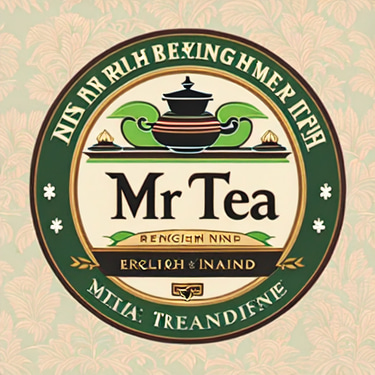Ensuring Quality When Importing Tea Picking Machines: A Comprehensive Guide
To ensure quality when importing tea picking machines, research reputable suppliers with proven track records. Request detailed product specifications, certifications, and customer reviews. Always opt for machines with warranties and reliable after-sales support. Inspect machines before shipment or arrange for third-party quality checks. Factor in long-term durability, ease of maintenance, and compliance with local standards. A thorough approach ensures you receive a high-quality machine that boosts productivity.
4/4/20255 min read


Understanding the Tea Picking Machine Market
The tea picking machine market has been steadily evolving, offering a variety of options to meet the growing demands of tea cultivation. Generally classified into mechanized and semi-mechanized machines, tea picking machines are designed to enhance efficiency and productivity while reducing labor costs. Mechanized machines are ideal for large-scale operations, whereas semi-mechanized options may suffice for smaller farms. The choice of machine often depends on factors such as the terrain, the type of tea being harvested, and the scale of cultivation.
Leading manufacturers in the tea picking machine market include well-established names that focus on innovation and functionality. Companies like Tsubaki and Teatool have pioneered advancements in harvesting technology, contributing to the development of machines that are not only efficient but also easy to operate. These manufacturers often incorporate features such as adjustable settings for different types of vegetation and ergonomic designs to minimize operator fatigue. Understanding the offerings from these key players can greatly enhance the decision-making process when selecting a machine.
Current trends in the market reflect a growing preference for automation and intelligent systems in tea picking machines. Advanced technologies, such as GPS and artificial intelligence, are becoming increasingly common, allowing for precise harvesting while minimizing damage to tea plants. Furthermore, sustainability is a significant concern; manufacturers are now focusing on producing eco-friendly machines that use less energy and generate lower emissions.
When searching for high-quality tea picking machines, potential buyers should conduct thorough research on suppliers and manufacturers. Evaluating customer feedback, analyzing product specifications, and seeking recommendations from industry peers will aid in identifying reputable sources. A well-informed decision will help ensure that the selected machine aligns with the specific needs of tea cultivation. Investing time in this research phase can lead to better operational outcomes while ensuring the quality of the tea harvested.
Evaluating Supplier Credibility and Quality Standards
When importing tea picking machines, assessing the credibility of suppliers is paramount to ensuring product quality. One of the first steps in this evaluation process involves checking the relevant certifications that demonstrate compliance with industry standards. Suppliers should ideally possess certifications such as ISO 9001, which denotes a commitment to quality management systems, and other relevant standards specific to agricultural machinery. These certifications serve as important indicators of the supplier's adherence to quality protocols and their capability to deliver reliable products.
Understanding the quality control processes employed by the supplier is also essential. Inquire about their production methodologies and the measures taken to ensure the machines are manufactured according to well-established specifications. Suppliers who utilize state-of-the-art quality control techniques, such as Six Sigma or Total Quality Management, typically demonstrate a more rigorous approach to achieving excellence in their products.
Additionally, potential buyers should seek out reviews and testimonials from other customers who have previously engaged with the supplier. Feedback from other importers can provide insights into the supplier's reliability, customer service, and the actual performance of their tea picking machines in the field. Evaluating online forums, social media platforms, and dedicated review websites may further illuminate the reputation of the supplier.
Another prudent practice is to visit the production facilities in person or, if feasible, request product samples. Physical inspections allow for a firsthand look at not only the manufacturing processes but also the machinery itself, ensuring it meets international quality standards. During such visits, it is beneficial to engage with the engineering teams and quality assurance personnel to gain a deeper understanding of the operational quality mechanisms employed.
However, while evaluating suppliers, be vigilant for potential red flags, such as lack of transparency regarding manufacturing processes, unverified certifications, or negative feedback from previous clients. These warning signs may indicate a compromised ability to deliver high-quality tea picking machines, which could significantly impact your operations.
Technical Specifications to Consider
When evaluating tea picking machines, understanding the technical specifications is paramount to ensuring optimal functionality and alignment with agricultural requirements. Several critical factors come into play, including machine capacity, durability, operational efficiency, maintenance requirements, and ease of use. Each specification significantly impacts the overall effectiveness of tea harvesting operations, making them essential for any purchasing decision.
Machine capacity refers to the volume of tea that can be harvested within a specific timeframe. This metric influences productivity directly; thus, it is vital to select a tea picking machine that matches the scale of your operations. A machine with a higher capacity may be beneficial for larger plantations, while smaller operations may require machines designed for lower output without sacrificing efficiency.
Durability is another crucial element, as tea harvesting often occurs in varying environmental conditions. Investing in a robust machine made of quality materials can withstand wear and tear will lead to lower long-term costs. Look for machines that offer warranties or guarantees to ensure that the investment is protected over time.
Operational efficiency is closely linked to the machine's design and technology. Advanced machines equipped with innovative features can streamline the harvesting process, reduce labor costs, and increase yield. Thus, assessing the technological aspects, such as automation and user interface, is essential for a seamless operation.
Maintenance requirements also deserve careful consideration. Machines that are easy to maintain will save valuable time and resources in the long run. Ensure you understand the maintenance schedule and availability of replacement parts before finalizing a purchase.
Ease of use shouldn’t be overlooked. A user-friendly machine ensures that operators can work efficiently without extensive training. Clear communication of these technical specifications to suppliers will help align the imported machines with your operational expectations, ensuring an effective harvesting process that enhances productivity and output in your tea operations.
Post-Purchase Quality Assurance and Support
Securing quality assurance post-purchase is vital when investing in tea picking machines. A robust after-sales support system not only enhances machine performance but also ensures a smooth operational process. Crucial elements of this support include warranty information, service agreements, and the availability of spare parts. Having a clear warranty policy protects your investment against potential manufacturing defects and offers peace of mind. Service agreements further provide tailored maintenance options, ensuring that the machine operates efficiently throughout its lifespan.
Furthermore, the availability of spare parts is essential for minimizing downtime during repairs and maintenance. It is advisable to verify with the supplier or manufacturer regarding the lead times for parts replacement, as quick access to these components can significantly reduce operational disruptions. A reliable source of spare parts will facilitate seamless upkeep and ultimately prolong the longevity of your tea picking machines.
To maximize the potential of the acquired machinery, it is essential to implement training sessions for operators. Proper training can substantially mitigate operational issues often associated with improper usage. Sessions should focus on machine functionality, safety protocols, and troubleshooting basic problems. By investing in personnel training, you ensure that operators can handle the machines efficiently, which directly influences the quality of tea picked and operational productivity.
Additionally, establishing a regular maintenance schedule can significantly enhance the performance and lifespan of tea picking machines. Consistent maintenance checks allow for the early identification of potential problems, thus avoiding costly repairs down the line. By following manufacturers' recommendations for maintenance, operators can ensure optimal efficiency and reliability of the machinery. In essence, the integration of comprehensive post-purchase quality assurance and support strategies will facilitate an efficient and productive tea-picking operation, ensuring that quality remains a priority over the machine's working life.
